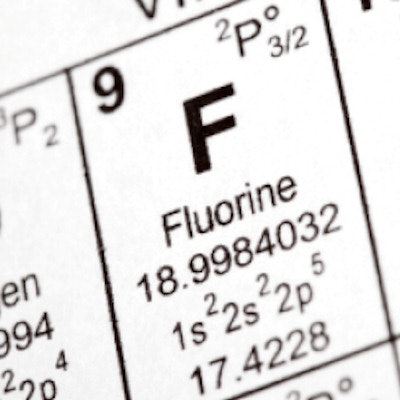
Fluoride exposure may contribute to kidney function changes in U.S. children, according to the findings of a study published August 8 in the journal Environment International. The authors cautioned more research is needed to explore a potential link.
The dental benefits of fluoride and community water fluoridation are well studied, but less research exists on fluoride's effects on other bodily systems. The researchers of the new study decided to specifically investigate the relationship between fluoride exposure and the health of the kidneys and liver because those two organs accumulate more fluoride than others.
"While the dental benefits of fluoride are widely established, recent concerns have been raised regarding the appropriateness of its widespread addition to drinking water or salt in North America," stated lead study author Ashley Malin, PhD, a postdoctoral fellow at the Icahn School of Medicine at Mount Sinai in New York City, in a press release. "This study's findings suggest that there may be potential kidney and liver health concerns to consider when evaluating fluoride use and appropriate levels in public health interventions."
The researchers parsed data from thousands of children who participated in the 2013 and 2016 National Health and Nutrition Examination Surveys. The surveys are conducted by the U.S. Centers for Disease Control and Prevention and are designed to provide nationally representative data about the health status of children and adults in the U.S.
Children with higher concentrations of fluoride in their blood had worse scores for some measures of kidney health, the researchers found. A 1 µmol/L increase in plasma fluoride was associated with a 10.36 mL/min/1.73 m2 lower estimated glomerular filtration rate (eGFR), the gold standard for measuring kidney function.
"To our knowledge, this study represents the first population-based study in the U.S. to examine the relationship between chronic low-level fluoride exposure and kidney- and liver-related parameters among adolescents," the study authors wrote.
The researchers urged caution when interpreting their results. Their intent was not to determine whether fluoride exposure is associated with reduced kidney function, they noted.
Nevertheless, they stated that their findings may suggest fluoride exposure contributes to complex changes in kidney and liver metrics for U.S. children. Another interpretation could be that children with worse kidney function have higher plasma fluoride levels, they noted.
"The current study suggests that there may be potential nephro- and hepatological health concerns to consider when evaluating fluoride use and appropriate levels in public health interventions," the authors wrote. "However, we emphasize that future studies are required to overcome the limitations of a single cross-sectional study."



















